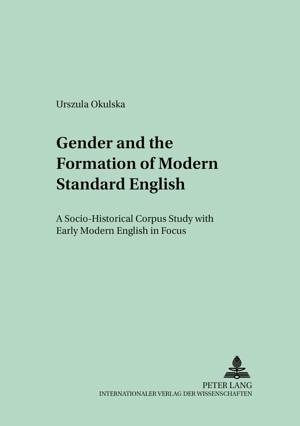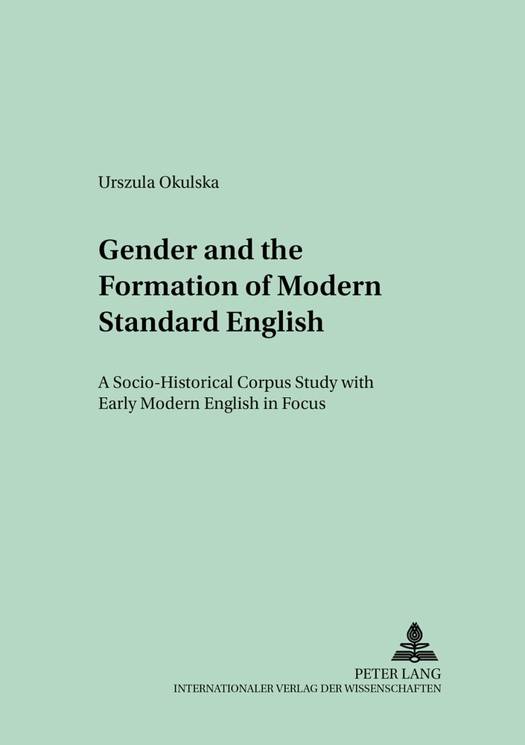
- Afhalen na 1 uur in een winkel met voorraad
- Gratis thuislevering in België vanaf € 30
- Ruim aanbod met 7 miljoen producten
- Afhalen na 1 uur in een winkel met voorraad
- Gratis thuislevering in België vanaf € 30
- Ruim aanbod met 7 miljoen producten
Zoeken
Gender and the Formation of Modern Standard English
A Socio-Historical Corpus Study with Early Modern English in Focus
Urszula Okulska
€ 99,45
+ 198 punten
Omschrijving
The study examines the influence of gender on several long-term changes between 1500 and 1710 with an aim to assess the power of this variable in the formation of Present-Day Standard English. It projects the findings of contemporary sociolinguistics onto the history of English to check whether it was women, as some contemporary research might indicate, who were main trendsetters in the Early Modern English period and propagators of language innovations that have finally shaped the structure of Present-Day Standard English. The research builds a bridge between contemporary and historical sociolinguistics in that it incorporates five recent hypotheses explaining gender-conditioned variation to probe fifteen morpho-syntactic alterations of the 16th-18th centuries. The parameters are tested against the level of gender-marking from the perspective of specific socio-economic transformations of the time. As a corpus-based project, the analysis joins micro- and macro-scale methodologies with qualitative and quantitative approaches to the data processed. The source material are Early Modern English informal writings, such as letters and diaries, from the Helsinki Corpus of English Texts.
Specificaties
Betrokkenen
- Auteur(s):
- Uitgeverij:
Inhoud
- Aantal bladzijden:
- 296
- Taal:
- Engels
- Reeks:
- Reeksnummer:
- nr. 14
Eigenschappen
- Productcode (EAN):
- 9783631549919
- Verschijningsdatum:
- 7/02/2006
- Uitvoering:
- Paperback
- Formaat:
- Trade paperback (VS)
- Afmetingen:
- 148 mm x 210 mm
- Gewicht:
- 389 g

Alleen bij Standaard Boekhandel
+ 198 punten op je klantenkaart van Standaard Boekhandel
Beoordelingen
We publiceren alleen reviews die voldoen aan de voorwaarden voor reviews. Bekijk onze voorwaarden voor reviews.











